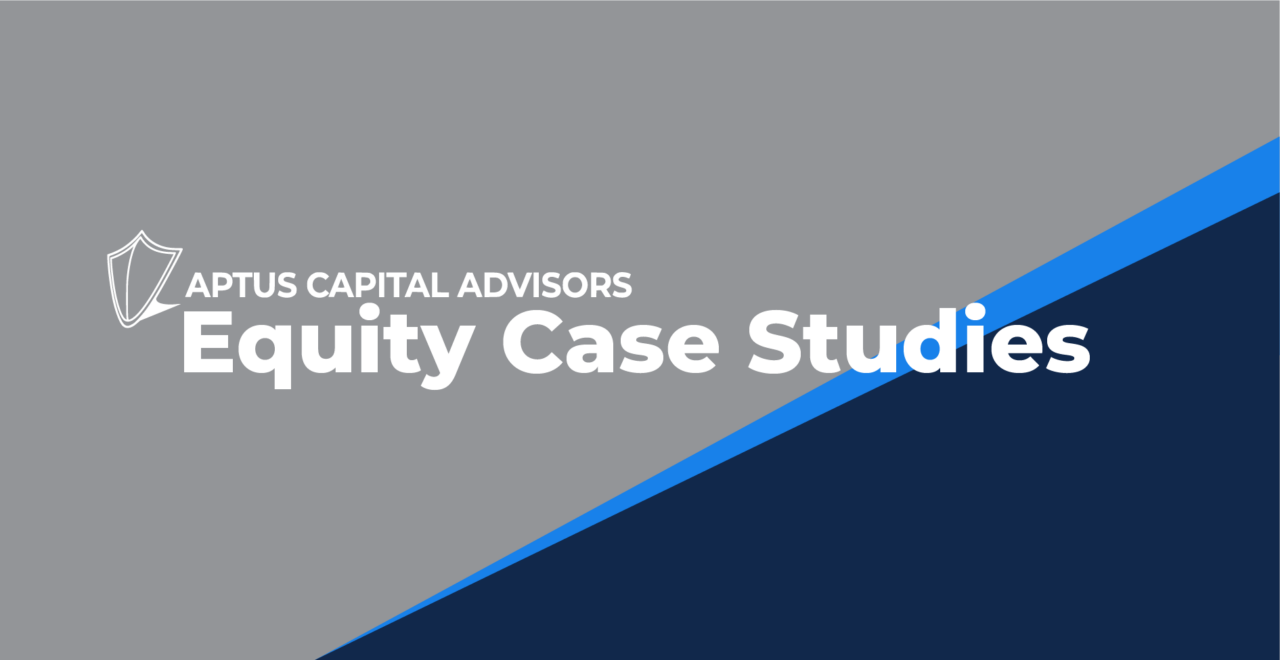Morningstar’s style box has been a huge influence in driving investors to see stocks as either value or growth. We think this classification falls woefully short, is highly sector-driven, and fails to separate our favorite stocks of all…Compounders.
What is a Compounder?
In a nutshell, we attempt to take the perspective of an owner, by tuning out short term market noise, and investing in businesses which we believe have the best opportunity to compound shareholder capital over many years through many different environments. While there isn’t one way to skin a cat, we believe consistency leads to positive outcomes and this holds true to investing in businesses over a long-time horizon. Bottom line, we believe short term volatility caused by investors with shorter time frames than ours gives us an advantage.
We seek to invest in businesses that we believe have an edge. Whether it be a competitive moat, long runway for organic growth, outstanding “Outsider” management, capital-light model, extraordinary pricing power, consistent recurring revenue or first mover advantage we look for businesses which we believe have a distinct advantage over their competitors.
The Search for Compounders
When we look for companies to allocate our shareholders capital, we spend a large chunk of our time on the front-end screening for names from a large universe, whittling down companies slowly and painfully. To find a company that meets our specific criteria can be like hunting for a needle in a haystack. The initial screening process is quantitative and looks something like this:

As we look through hundreds of companies and financial statements, a preliminary look over the financial statements and the tools we’ve created in Bloomberg and Factset helps give us a fairly quick idea of whether a company deserves a deeper dive. We believe these tools aid in filtering out companies based on our criteria in a streamlined process. The quickest way to get kicked out of our list is lack of topline revenue growth that translates down the income statement into earnings.
Digging Deeper
We consistently see what we classify as good, mature businesses regardless of the industry grow EBIT at a faster percentage rate than revenue. A strong management team can add value to their shareholders in several ways ranging from M&A, buybacks, organic growth, dividends, paying down debt, etc. From our perspective/experience, good managers in less growthy sectors get creative in their efforts to create shareholder value by disciplined acquisition efforts, exceptional capital allocation, reinvestment back into their own business, cost reductions, share count reduction.
We believe the most pure form of compounding is a massive runway of organic growth with a large total addressable market (TAM). Managers that can redeploy earnings back into their business are typically able to deliver much higher returns on capital, as they know their businesses better than anyone. Businesses that are especially attractive are what we consider Capital-Light compounders.
These companies don’t require extensive fixed assets, expensive equipment or buildings, or never-ending CAPEX. These Cap-Lite businesses have what we see as intangible assets, intellectual property, unique technology, subscription models with very high customer retention, royalties, franchises, negative working capital, etc.
We look to find what we classify as the best operators in each category. The management teams that run clean businesses by continually returning value to shareholders year after year. Good businesses have pricing power (raise prices faster than inflation), have a product their customers can’t live without (or can’t afford to switch from), accretive (but non-distracting) M&A, and lastly tactical share buybacks. Accretive buybacks over time can act as a compounding amplifier, as the company continues to grow earnings per share at an attractive level, not needing additional capital to grow and decreasing share count.
Compounding at Work
This is a cliché analogy, but very much holds true to our style of investing. You are given two options:
- Lump sum of $1,000,000, or
- A penny that will double every day for 30 days.
For example, the penny after its first week is worth $1.28. After the second week, it’s worth $163.84. You may guess that the penny will be worth more than $1,000,000, but by just how much might surprise you.
It turns out that after doubling 30x, the penny would be worth $5,368,709.12! This highlights the not-so-obvious power of compounding returns. Patience and a long-term perspective are required to give the power of compounding an opportunity to do its magic.

Source: Aptus Research
Overall, we like to do a bunch of the up-front work on the companies we own, but let the management team do the heavy lifting during our ownership. From our perspective, time is on our side, giving these stocks time to compound over long periods.
Disclosures:
Past performance is not indicative of future results. Investing involves risk including the potential loss of principal. This material is not financial advice or an offer to sell any product. The actual characteristics with respect to any particular client account will vary based on a number of factors including but not limited to: (i) the size of the account; (ii) investment restrictions applicable to the account, if any; and (iii) market exigencies at the time of investment. Aptus Capital Advisors, Inc. reserves the right to modify its current investment strategies and techniques based on changing market dynamics or client needs. Forward looking statements cannot be guaranteed. This is not a recommendation to buy or sell a particular security. There is no assurance that any securities discussed herein will remain in an account’s portfolio at the time you receive this report or that securities sold have not been repurchased. The securities discussed may not represent an account’s entire portfolio and in the aggregate may represent only a small percentage of an account’s portfolio holdings. It should not be assumed that any of the securities transactions, holdings or sectors discussed were or will prove to be profitable, or that the investment recommendations or decisions we make in the future will be profitable or will equal the investment performance of the securities discussed herein. Information was obtained from third party sources which we believe to be reliable but are not guaranteed as to their accuracy or completeness.
Advisory services offered through Aptus Capital Advisors, LLC, a Registered Investment Adviser registered with the Securities and Exchange Commission. Registration does not imply a certain level or skill or training. More information about the advisor, its investment strategies and objectives, is included in the firm’s Form ADV Part 2, which can be obtained, at no charge, by calling (251) 517-7198. Aptus Capital Advisors, LLC is headquartered in Fairhope, Alabama. ACA-2007-58.



